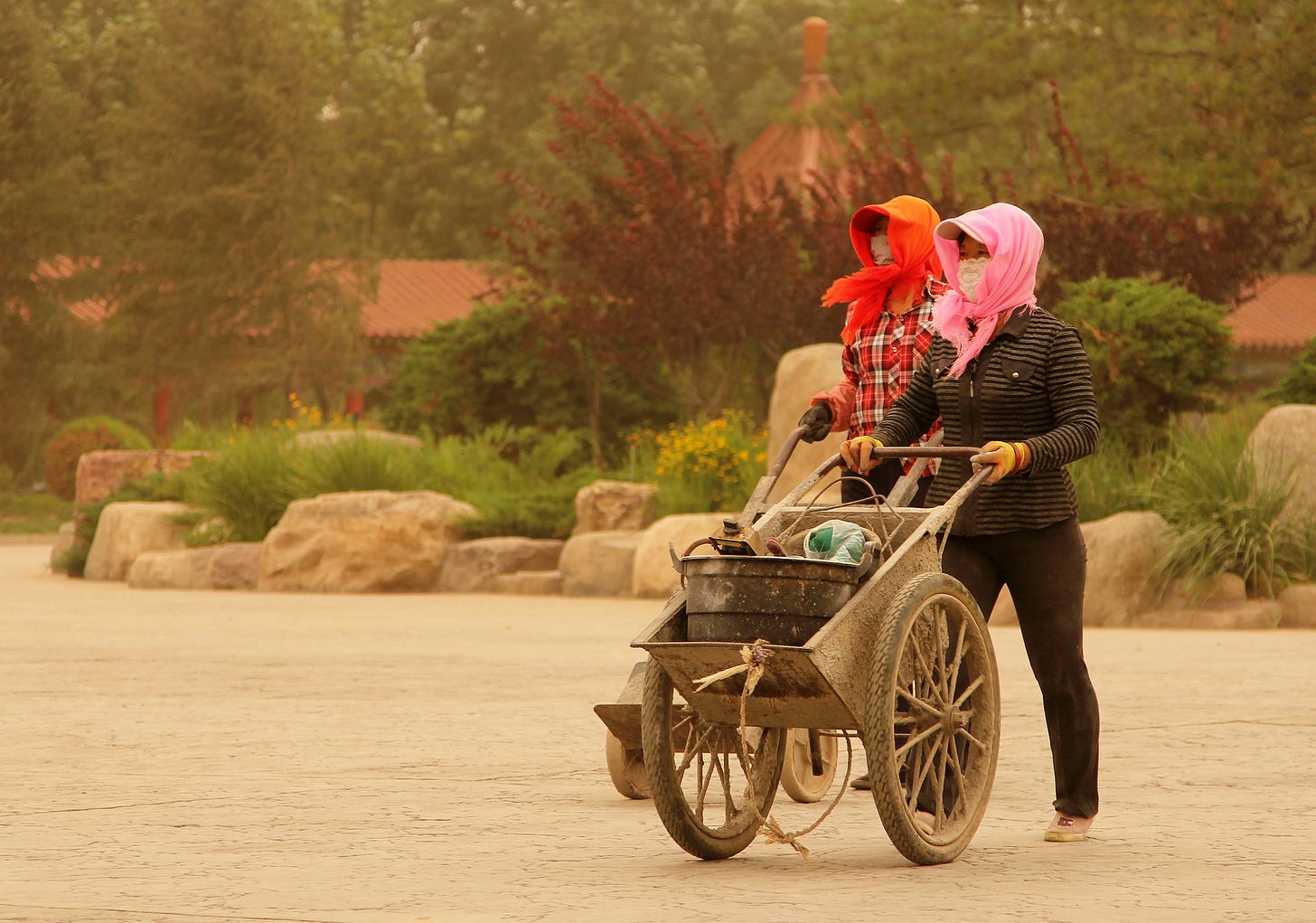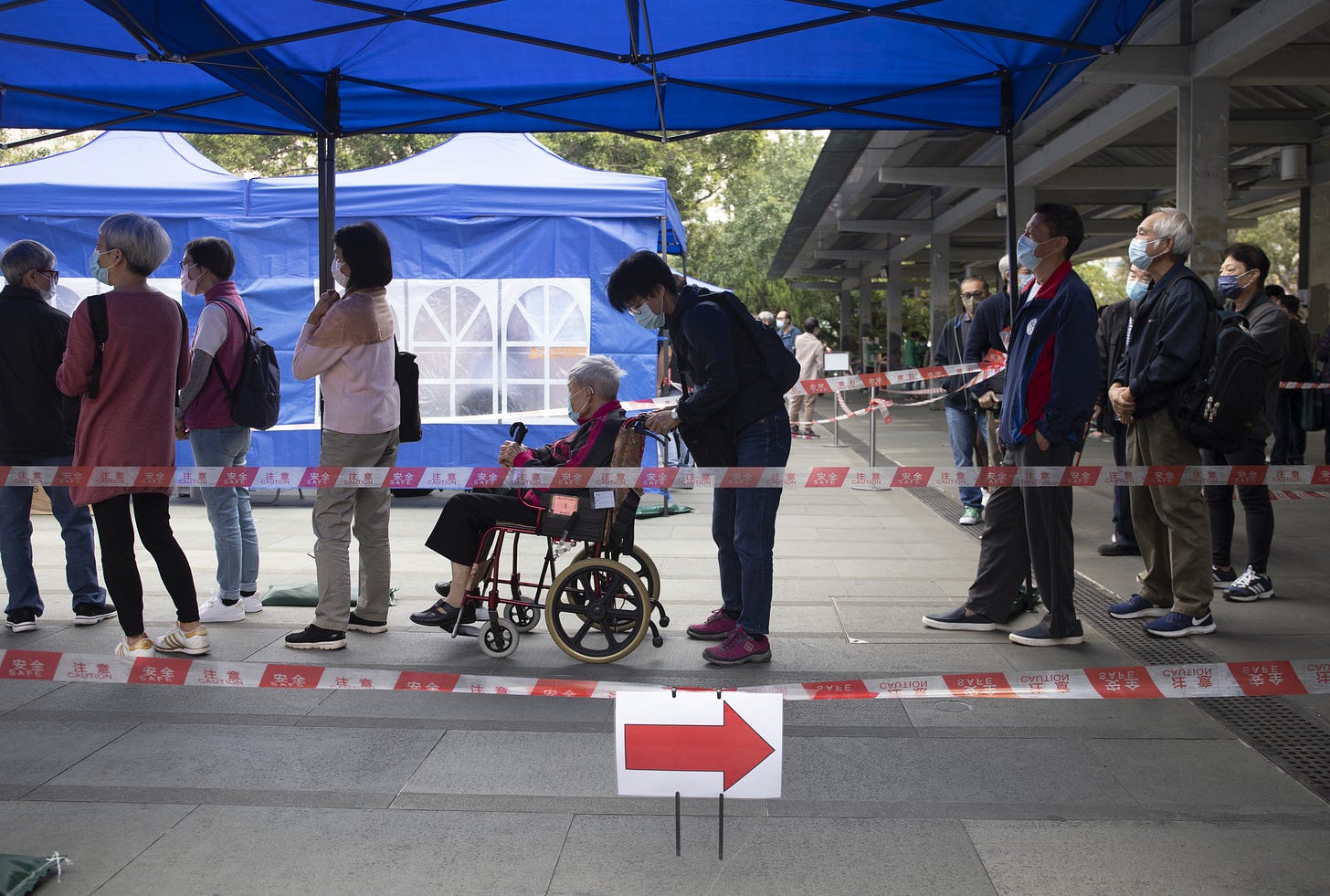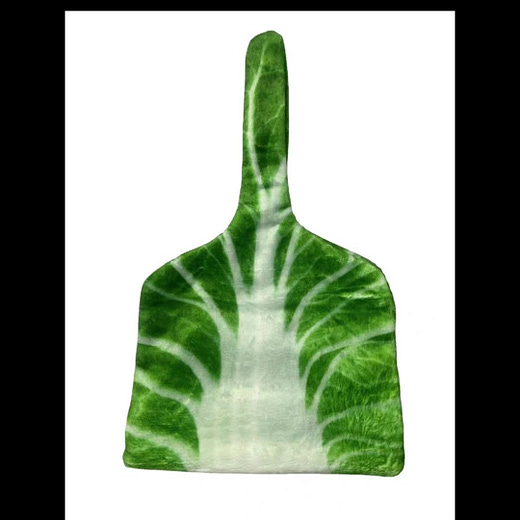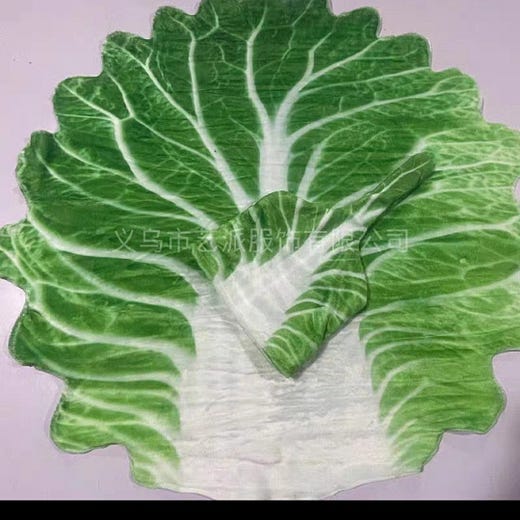'Talent transfers'
For two decades, Chinese scientists working at the US Los Alamos National Laboratory have been lured home by cash incentives: report
A model of the Fat Man nuclear bomb on display at the Bradbury Museum. Photo: Dreamstime.
More than 150 Chinese scientists who have worked on US government-sponsored research at Los Alamos National Laboratory, where nuclear weapons were first developed, have been lured back to China over the past two decades, according to NBC News.
At least 154 Chinese scientists who worked on government-sponsored research at the U.S.’s foremost national security laboratory over the last two decades have been recruited to do scientific work in China — some of which helped advance military technology that threatens American national security — according to a new private intelligence report obtained by NBC News.
In fact, the Los Alamos National Laboratory scientists who have returned to the PRC and are now working on military research programs are so numerous that they are referred to in China as the “Los Alamos Club.”
The report, by Strider Technologies, describes the Chinese government program to bring its scientists home with high-security knowledge as a systemic effort.
Scientists, the report says, were “lured back to China to help make advances in such technologies as deep-earth-penetrating warheads, hypersonic missiles, quiet submarines and drones.”
Scientists were paid as much as [US]$1 million through participation in Chinese government ‘talent programs,’ which are designed to recruit Chinese scientists to return to China. Such talent programs have long been identified as a source of concern, but U.S. officials said they had not previously seen an unclassified report that described the phenomenon in such detail, naming specific scientists and the projects they have worked on.
Greg Levesque, a co-founder of Strider and the lead author of the report, described the talent transfers as posing a “direct threat to US national security. He added, according to NBC, “China is playing a game that we are not prepared for, and we need to really begin to mobilize.”
Build it and they will come
Weibo video grab of the Covid quarantine facility in Guangan city, Sichuan.
For anyone who imagines that China will return to “normal” – that is, a relaxing of zero Covid – after the 20th Party Congress, which gets underway on October 16, consider the 14,000-bed covid isolation center that is being built in southwestern China.
Bloomberg reports:
Drone footage shared on Douyin, Tiktok’s twin service in China, shows scores of what appear to be pre-fabricated structures similar to shipping containers lined up in a clearing surrounded by forest. Several social media users said the video showed a Covid quarantine facility in Guangan city, Sichuan [Province].
Chengdu, capital of Sichuan Province, recently loosened lockdown rules that had been in place for two weeks, according to another Bloomberg report, but with new omicron variants, such as BA.2.75.2 on the rise, the Chinese government gives every appearance of wanting to be ready for whatever’s coming next.
You may not agree with their pandemic strategy, but China’s clearly not buying US President Joe Biden’s message: “the pandemic is over.”
Don’t forget the drought
A sandstorm in Inner Mongolia. Photo: Photo © Katoosha | Dreamstime.com
The South China Morning Post reports on yet another threat to China’s food supplies and its beleaguered economy in general: drought.
The National Meteorological Centre issued a nationwide drought warning for the 33rd straight day on Monday, pointing to the fact that there has been not a single drop of rain in the capital cities of the southern provinces of Jiangxi and Hunan this month.
The New York Times reports that the continuing lack of rainfall is intensifying pressure on China’s run-ragged supply chains.
The Yangtze River, which bisects China, dipped so low that the oceangoing vessels that typically traverse its upper reaches from the rainy summer into early winter could no longer run.
Companies had to scramble to secure trucks to move their goods to Chinese ports, while China’s food importers hunted for more trucks and trains to carry their cargo into the country’s interior. The heat and drought have wilted many of the vegetables in southwestern China, causing prices to nearly double, and have made it hard for the surviving pigs and poultry to put on weight, driving up meat prices.
The inflationary burden will, of course, fall on ordinary Chinese, vast numbers of whom have been locked down – either underemployed or outright unemployed with no government support. If tempers do not flare in the months ahead it will be a miracle.
Former justice minister runs afoul of law
Fu Zhenghua has been brought down by the justice system he once presided over. Photo: PTI.
A court in Changchun, in China’s northeast Jilin Province, meted out a suspended death sentence to former justice minister and head of the Beijing Public Security Bureau yesterday for allegedly accepting more than CNY100 million in bribes.
The sentence was commuted to life in prison, according to media reports.
The Global Times reports:
He received death with reprieve with consideration that Fu had confessed to all his crimes and pled guilty during the investigation, provided clues for important cases and had been cooperative in returning his illegal gains, according to the court.
The BBC notes that there has been a crackdown on officials ahead of the Communist Party Congress next month.
Fu's jailing on Thursday follows the sentencing of three other former provincial police chiefs this week. All four men are not only accused of corruption but also of being disloyal to Mr Xi.
Along with Fu, Wang Like, former member of the Standing Committee of the CCP Jiangsu Provincial Committee, was also sentenced to a commuted death sentence.
Both are considered part of the so-called Sun Lijun clique. Sun has yet to be sentenced, but may not get the reprieves handed out to his fellow “clique accomplices.”
Fu pleaded guilty in July to accepting CNY117 million (US$16.5 million) in gifts and money for personal gain, and is one of the latest in more than 1 million CCP officials who have fallen victim to purges since CCP General Secretary Xi Jinping came to power in 2012.
Ironically, Fu presided over the trial that ended the career of one of China’s most powerful officials, Zhou Yongkang – formerly a member of the Politburo Standing Committee and secretary of the Central Political and Legal Affairs Commission between 2007 and 2012 – in line with Xi’s famous commitment to eradicate both corrupt “tigers and flies” from the CCP.
Ten years on, it would appear tigers and flies abound still – perhaps conveniently for a man determined to stake out a long-term perch at the top of the CCP superstructure.
Man of mystery
Citizens in Henan Province demanding their savings back. Photo: WikiCommons.
The story of Lü Yi (呂奕), as documented by Caixin, provides a glimpse into opportunistic greed with wide-ranging ramifications far from the roaming eye of Beijing.
Its twists and turns have been lighting up in strobe-like bursts for some time.
The Financial Times, for example, referenced Lü in early July, when police were forced to break up protests by depositors in Henan Province, where rural banks were shutting down deposits.
Bloomberg reported on August 30:
Police in Xuchang city of Henan Province arrested 234 suspects tied to the scam and made “significant progress” in recovering the stolen money, according to a statement late Monday. Police have said that a criminal gang led by suspect Lv Yi illegally controlled four rural lenders including Yuzhou Xinminsheng Village Bank, offering rates as high as 18% to attract funds that officials say amounted to 40 billion yuan ($5.8 billion).
Now, Caixin has stepped in with investigative details that are riveting to an unusual extent in China’s highly regulated media – although it’s worth considering that blaming a systemic problem on one bad apple is an effective ploy for diverting attention from other bad elements with sinecured banking and Party positions.
Behind the multibillion-dollar swindle of hundreds of thousands of bank depositors across China that sent shockwaves through the nation’s banking system and resulted in the arrest of 234 people is a single shadowy businessman known as Lü Yi.
Police allege that Lü led a ‘criminal gang.’ Although local authorities in central China’s Henan province briefly had him under house arrest early this year, the 48-year-old Lü has since eluded capture in the massive dragnet police deployed since the scam came to light in April. He spent years planning escape routes and went to the trouble of obtaining citizenship in Cyprus, people familiar with him told Caixin.
Over almost two decades starting in 2003 when he acquired toll rights to an expressway, Lü wove a massive business web across China built on billions of yuan in fraudulent loans...
The controlling shareholder of Xincaifu Group is Lü, a Henan businessman known as a powerful player in financial circles who has long remained elusive. Sources told Caixin he had deep connections and business ties with many financial institutions across China.
There has been limited public exposure of Lü, a Henan native. The last time he appeared on media was in March when he reportedly delivered a speech in the United States as chairman of Peaceever TV International Media Group Inc., a New York based nonprofit media organization
What does anyone know now? He allegedly retired eight years ago, was forced to resign from the Communist Party, has been investigated and walked away free.
He reportedly transferred vast sums of money abroad via hired Henan Province villagers.
Rumor has it he’s hiding out in the US.
Xi aims to make unification goal official
Chinese Foreign Minister Wang Yi meets with Henry Kissinger in New York. They apparently both believe, ‘There is but one China in the world, and Taiwan is part of China.’ Photo: Handout via South China Morning Post.
Kyodo News may have confirmed a rumor that has been doing the rounds: Xi wants to slip unification with Taiwan into the Party charter as a “long-term goal.”
In a report to the previous party congress in 2017, Xi termed Taiwan reunification as one of historical tasks of the party, but stopped short of presenting detailed schedules.
It’s difficult to imagine Xi committing to a schedule even in the upcoming Party Congress, unless it’s situated in the nebulous future.
But enshrining it in the Party Charter seems to have legs.
Beijing TV news channel CGTN, which is owned by the Chinese state broadcaster China Central Television, has even announced it – in an obfuscating, roundabout way.
“China's national rejuvenation has entered an irreversible historical process,” the broadcast said. It further quoted Chen Yuanfeng, deputy director of the Taiwan Work Office of the CCP Central Committee, as saying, “China's complete reunification, time, momentum and righteousness are always on the mainland's side.”
Director of Research, Bureau of Taiwan Work Office of the CCP Central Committee Qiu Kaiming added:
‘There is but one China in the world, and Taiwan is part of China. This is an indisputable fact supported by history and the law. Taiwan has never been a state; its status as part of China is unalterable.’
Meanwhile, the South China Morning Post reports that Chinese Foreign Minister Wang Yi met with the grand old man of China appeasement, Henry Kissinger, in New York and invoked China’s anti-secession law as a possible casus belli if Taiwan rejects “peaceful unification.”
Taiwan promptly rejected “the offer,” according to Reuters.
All mainstream Taiwanese political parties have rejected that proposal and it has almost no public support, according to opinion polls, especially after Beijing imposed a national security law on Hong Kong in 2020 after the city was rocked by sometimes violent anti-government and anti-China protests.
‘The Taiwanese people have already clearly rejected it,’ … [Taiwan’s] Mainland Affairs Council said.
How China became ‘rich’ despite the Party
The Financial Times approves of Frank Dikötter’s China after Mao (available in general release, September 29) – a revisionist take on the view that CCP-instituted reforms made China an economic powerhouse.
It’s a reminder that China became rich not because of the CCP but despite the CCP.
The further argument is that the seeds of China’s contemporary crisis – “falling growth, escalating debt, a yawning property crisis and huge misallocation of capital, not to mention the impact of its zero-Covid policy” –.were sown back in the early days of reform and opening up.
As in his previous works [three ‘revelatory books on China under Mao’], Dikötter is bracingly direct in his account of the policy contortions of a regime he characterises as being marked by ‘bitter back-stabbing and fighting for power among endlessly changing factions’, intrinsic corruption and a leadership most of whose members ‘do not understand even basic economics’.
Dikötter repeatedly cites statements by leaders in Beijing, many of whom appeared to the world as reformers, that they would never deviate from Marxist socialism. As he argues, ‘without political reform market reform cannot exist’. Given their resistance to political change, leaders from Deng to Xi have never even considered opening up the economy to real market competition. Rather, they have indulged only in ‘tinkering with a planned economy’, he writes. As for openness, ‘what the regime has built over the past four decades is a fairly insulated system capable of fencing off the country from the rest of the world’.
The Greater Sinosphere
Hong Kong
IPOs in the doldrums
Public offerings falter in Asia’s erstwhile financial hub. Photo: © Joe Sohm, Dreamstime.com.
Hong Kong may have long commanded a leading role when it comes to Asian region IPOs – “an average of 26% from 1995 to 2021, the data show,” according to Bloomberg – but those glory days are at least temporarily over.
Today Hong Kong has just 7% of the Asian IPO market.
Hong Kong’s IPO market has been in the doldrums for much of the year, with proceeds down 78% from this time last year as global concerns over inflation and rising interest rates caused share sales to grind to a halt in most regions. In addition, Beijing’s relentless pursuit of its Covid Zero strategy and a property market slump have weighed on Hong Kong’s stock market as fears grow about the drag on the world’s second-largest economy.
Hong Kong’s IPO predicament isn’t about to change even with a recent resurgence in deals. A property management firm and electric vehicle maker this week started taking orders for listings worth almost $2 billion combined, with a battery maker expected to follow suit with its own similarly-sized offering.
Doctors issue fake vaccine exemption papers
Hongkongers queue for vaccinations. Photo: Dreamstime.
The hunt is on for doctors issuing fake Covid-19 vaccination exemption papers in the wake of the arrest of three medics and eight patients, according to Hong Kong Free Press (HKFP).
The government will pursue doctors suspected of writing fake certificates for exemptions from jabs, Chief Secretary for Administration Eric Chan said in a Facebook post on Wednesday.
In a follow-up report on Thursday, HKFP stated that police were investigating “strange” price differentials for fake certificates – from HK$350 to “around HK$4,000, depending on the doctor.”
There’s clearly big money for compliant medical practitioners:
A 59-year-old doctor surnamed Wong was said to have issued more than 6,600 certificates at his clinic in Chai Wan between February and June and to have charged around HK$3,000 for each one.
Good news only, please
John Lee, elected as Hong Kong chief executive as the sole candidate, pictured here with his wife Janet Lam. Photo: China News Service; WikiCommons.
Speaking at a media event on Thursday, ahead of China’s October 1 National Day, Chief Executive John Lee urged “patriotic” journalists to “deliver Hong Kong’s latest developments and correct message” to the world – words that may well have been dictated to him by Beijing.
Lee said more “good Hong Kong stories” should be told, and “told well.”
‘Every journalist sitting here loves the motherland and Hong Kong, and hopes to push for societal progression and the improvement of people’s lives through objective and fair reporting and commentary,’ said Lee.
As if we needed reminding that the curtains have drawn on the city’s once lively press, John Lee has Beijing’s back in ensuring nobody forgets.
Taiwan
Exporters feel the pain of a contracting Chinese economy
Kaohsiung container port. Photo: WikiCommons.
Taiwan exports were down 20% from their 2021 December peak, reports Bloomberg, which suggests more to come given that orders from China and Hong Kong dropped more than 25% last month.
‘If China’s economy remains sluggish and reopening in China keeps on being postponed, that is a very significant pressure on Taiwan’s trade side,’ said Ma Tieying, an economist at DBS Group Holdings Ltd. ‘In terms of electronics, chemicals, commodities-related sectors, the dependence ratio on China’s market is still pretty high for Taiwan’s exports.’
Taiwan has been trying to ween itself off its China trade addiction for more than two decades, with – for example – a variety of “Go South” policies that have indeed seen “some diversion of Taiwanese exports to Southeast Asia, according to Darson Chiu, research fellow at the Taiwan Institute of Economic Research.”
It’s a step in the right direction but far from a fait accompli.
‘This can somewhat make up for the blows from exports to China, but China’s supply chain is definitely still stronger than that of Southeast Asia,’ Chiu said.
New tourism rules set to go into force on 13 October
Head of the Central Epidemic Command Center (CECC) Victor Wang (Wáng Bìshèng, 王必勝) said on Thursday that that Taiwan’s new "0+7" entry system, in which quarantine is replaced by personal health monitoring, will be launched by mid-October at the latest, according to CNA.
The domestic mask mandate will be lifted in stages, as will visa-free entry, Wang said.
The first stage – from September 29 – will cap weekly incoming passengers at 60,000, with loosened quarantine measures measures and the cancellation of saliva tests upon arrival.
The second stage, from October 13, will cap incoming passengers at 150,000 per week, allowing citizens from visa-free countries entry and bans on tour groups lifted.
Tibet
Authorities accused of torturing Tibetans – 1 to death – for praying in public
Better times for prayer, Lhasa, circa 1994. Photo: ChinaDiction.
Sources in exile have told Radio Free Asia (RFA) that five Tibetans were allegedly arrested and tortured “for publicly lighting incense and praying.”
One of the Tibetans has reportedly died.
The five Tibetans, identified as Chugdhar, Ghelo, Tsedo, Bhamo and Kori, lit incense and prayed for the long life of the exiled Tibetan spiritual leader, the Dalai Lama, in Sertar county (in Chinese Seda), in China’s northwestern Sichuan province on August 24.
‘The arrested Tibetans were appointed by the local Tibetans in their area to lead religious activities,’ a Tibetan living in exile, who requested anonymity for security reasons, told RFA’s Tibetan Service.
In Setar, which has repeatedly come under assault by the Chinese authorities, prayer flags are reportedly outlawed and incense – key to some Tibetan religious rituals – is banned because it causes environmental pollution, the source told RFA.
Coda
Imagine your very own baby – now imagine it wrapped in cabbage
Thanks to Manya Koetse, founder of the highly recommended What’s on Weibo, who dug up a “new-arrival” meme that is sure to take the world by storm.
Note the “cabbage hat,” which appears to come with the cabbage wrapping at a bargain price of CNY25, or just US$3.55, which is probably cheaper and better for your baby than a Big Mac.



















